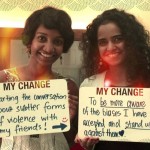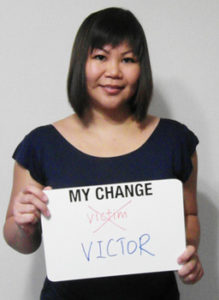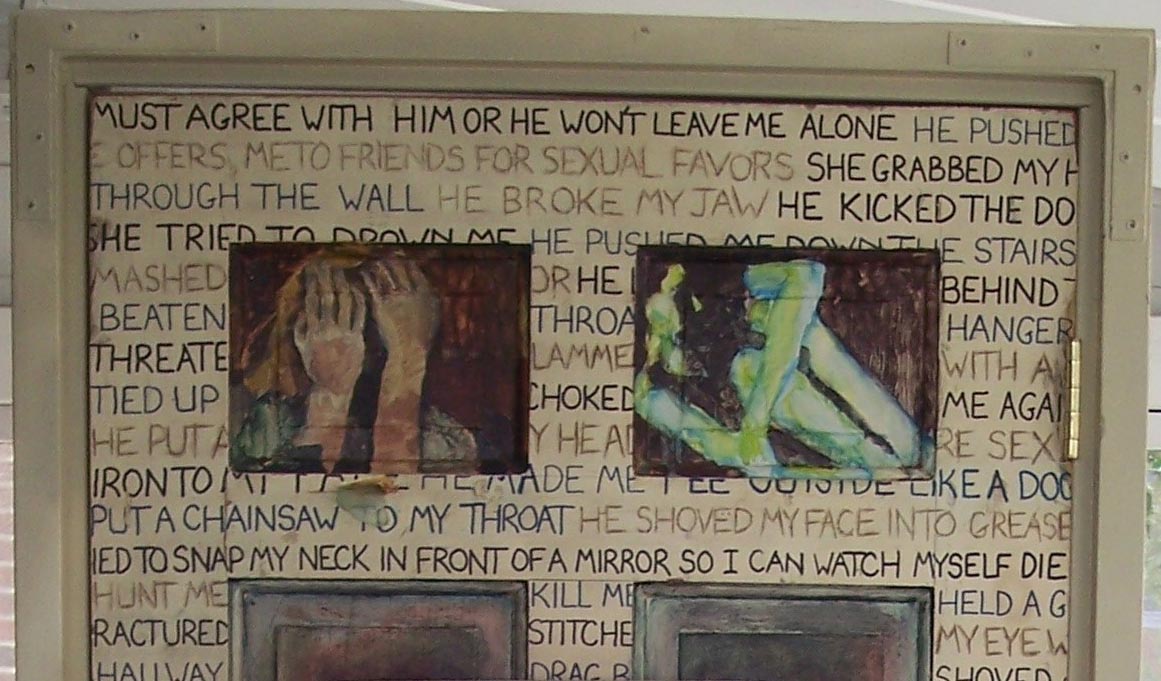by Carolyn Chan, Change Maker
People are often very quick to blame someone for staying in an abusive relationship. In my opinion, they have no right to judge victims of abuse until they have had firsthand experience. These people tend to be quick to assume that victims do not do enough to walk away from abuse when they do not view the situation through the same lens survivors do.
I was in two abusive relationships. I am in my twenties now, and I am shaped by these experiences I had as a teen and young adult. Even as I write this, I can’t help but feel that twinge of shame despite knowing that abusive behaviour can manifest in any relationship.
I loved my first boyfriend unconditionally and forgave all of his mistakes, even when he kept reminding me that he was the best I was ever going to get. Once, he abandoned me in a part of town I wasn’t familiar with over a small argument. He found fault with me at every turn and blamed me for everything. After several months, I grew increasingly unhappy and I knew things were getting worse. The only reprieve I had was during the school holidays when I spent a week at home to think about how I wanted to proceed with this relationship.
 One evening, I picked up the phone to end the relationship once and for all. It was one of the hardest and most painful things I had to do. He did not make it easy for me and threatened to throw away all the belongings I kept at his apartment. It wasn’t easy and I cried for days but it was worth it. I was never physically abused by him, but even now with my current partner, there are moments when I think to myself, “Why is my boyfriend being so nice to me?”, “Why does he understand?” or “Why isn’t he getting mad at me?”. I was conditioned into thinking being treated badly was the norm.
One evening, I picked up the phone to end the relationship once and for all. It was one of the hardest and most painful things I had to do. He did not make it easy for me and threatened to throw away all the belongings I kept at his apartment. It wasn’t easy and I cried for days but it was worth it. I was never physically abused by him, but even now with my current partner, there are moments when I think to myself, “Why is my boyfriend being so nice to me?”, “Why does he understand?” or “Why isn’t he getting mad at me?”. I was conditioned into thinking being treated badly was the norm.
The second relationship I was involved in was more physically abusive. I was strangled on several occasions and sexually coerced into doing things I didn’t want to. Of course, I didn’t tell anyone this. I did everything he asked because I thought I owed it to him. I was his girlfriend, why would I say no to sex with him for no good reason?
I cheated on him with a colleague and guilt-ridden, came clean to him about it. The hostility I was met with was nothing I had ever expected. I was looked at with contempt and anger and called all kinds of names like slut, dirty whore, and bitch etc. He barricaded me in his room and refused to let me leave to take a breather or a walk. I felt horrible, as though I had committed one of the gravest crimes in the world. I cried the whole day I was at his house.
Before I returned home, he told me never to tell any of my friends or family about this. When I left, I sought help from a counsellor and poured my heart out. I told her every shameful thing that he ever did to me. It was the first time I ever opened up to anyone about it, and it was such a relief! I knew on a deeper level that I deserved better than him. After he had crossed the line, I could no longer trust him anymore. He had lost my trust a lot earlier, but I just didn’t know it at the time.
I know my story isn’t an uncommon one, even my friends and family members have powerful tales of anger, sadness, frustration and betrayal. There are far too many teenagers and young adults who have gone through what I have.
When you are young, it’s sometimes hard to know what you need. Sometimes you don’t know your own worth. We are always taught to respect others, school property and yourself, but we are rarely taught that we deserve respect from others, especially from the men or women we hold dear in our lives.
 About the Author: Carolyn is a twenty-four year old horse-mad, salsa dance-loving, feminist who recently moved back to Singapore after spending seven years studying overseas in Canada. She holds a bachelors degree in Psychology from the University of Waterloo. She credits her undergraduate experience for igniting her passion for women’s rights especially young women. She is devoted to helping create a world free from inequality and violence.
About the Author: Carolyn is a twenty-four year old horse-mad, salsa dance-loving, feminist who recently moved back to Singapore after spending seven years studying overseas in Canada. She holds a bachelors degree in Psychology from the University of Waterloo. She credits her undergraduate experience for igniting her passion for women’s rights especially young women. She is devoted to helping create a world free from inequality and violence.

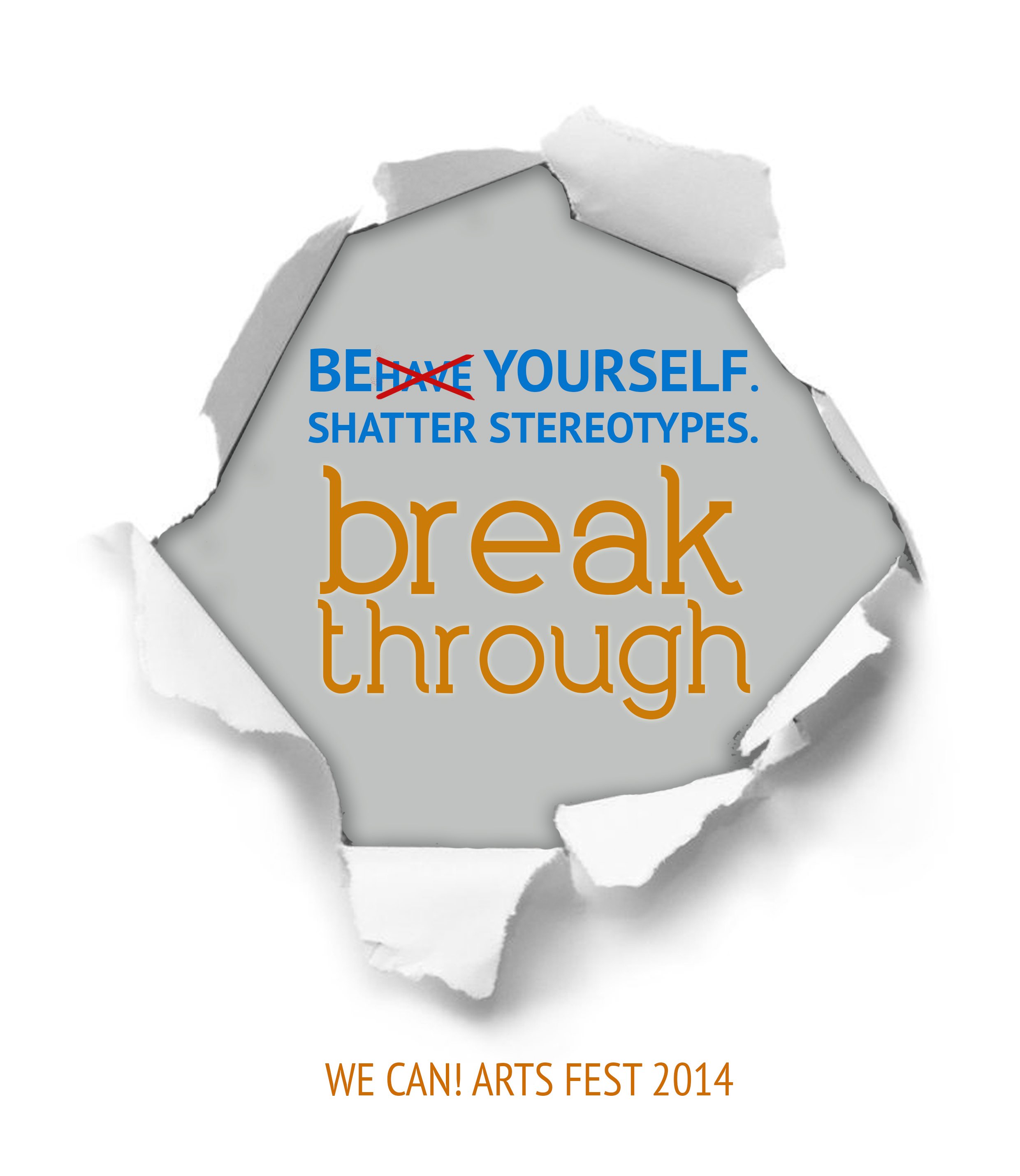


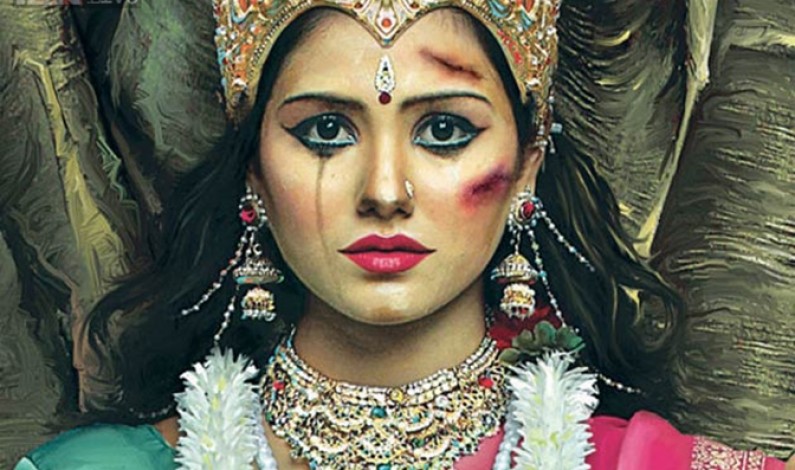
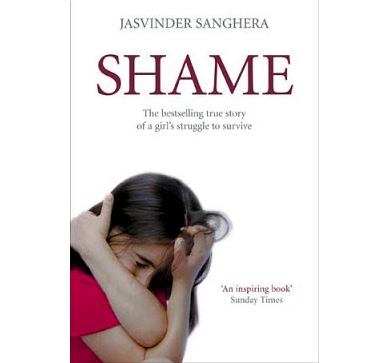 I just finished the book ’Shame’, which is about forced marriage, honour killings and domestic violence in the South Asian diaspora of Britain. The author is a Sikh woman from Derby who survived very brutal oppression and violence by her family and community, and has spent her life supporting and advocating for other South Asian women and girls in Britain, mostly of Pakistani origin, who’re affected by the same conditions she was in.
I just finished the book ’Shame’, which is about forced marriage, honour killings and domestic violence in the South Asian diaspora of Britain. The author is a Sikh woman from Derby who survived very brutal oppression and violence by her family and community, and has spent her life supporting and advocating for other South Asian women and girls in Britain, mostly of Pakistani origin, who’re affected by the same conditions she was in.